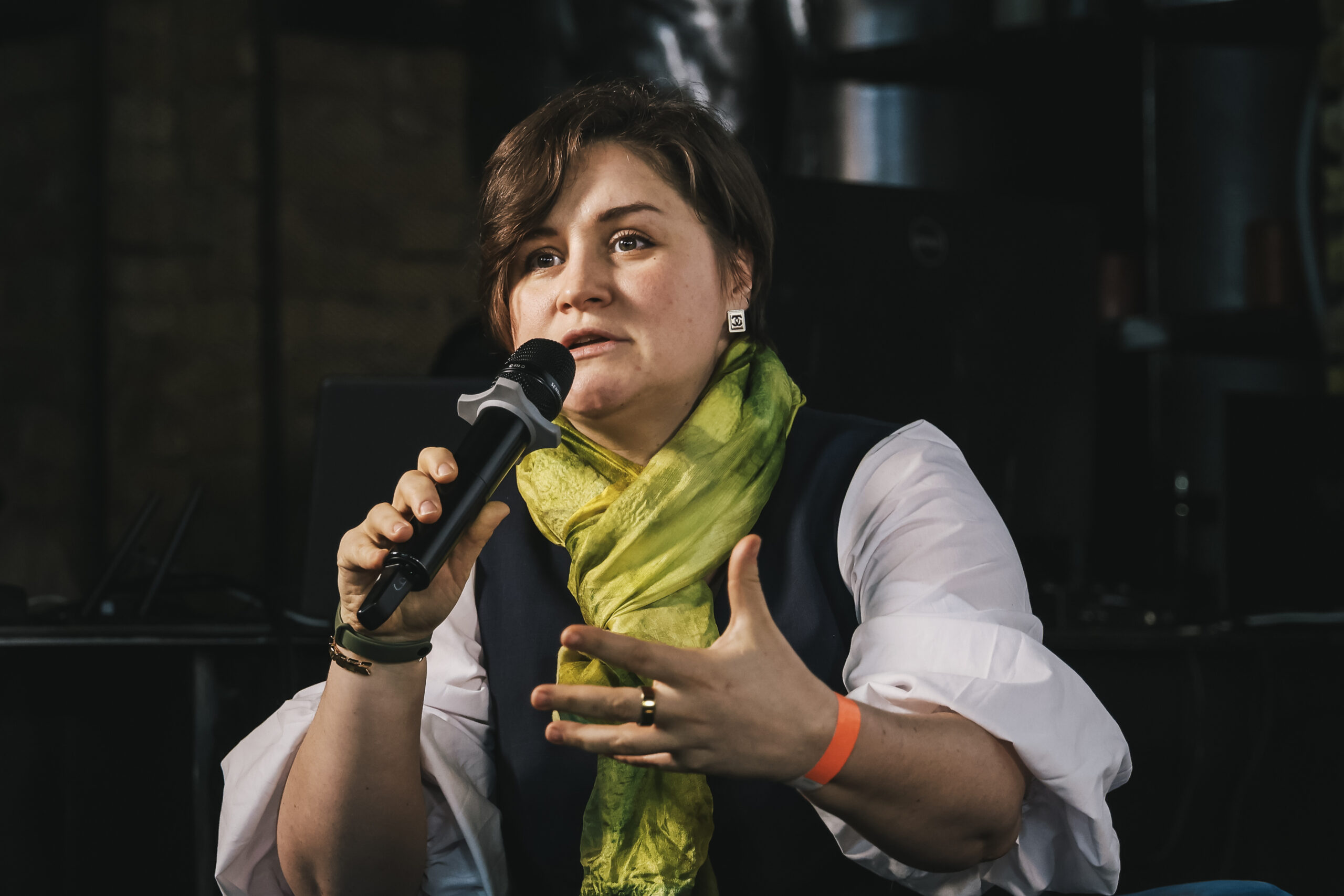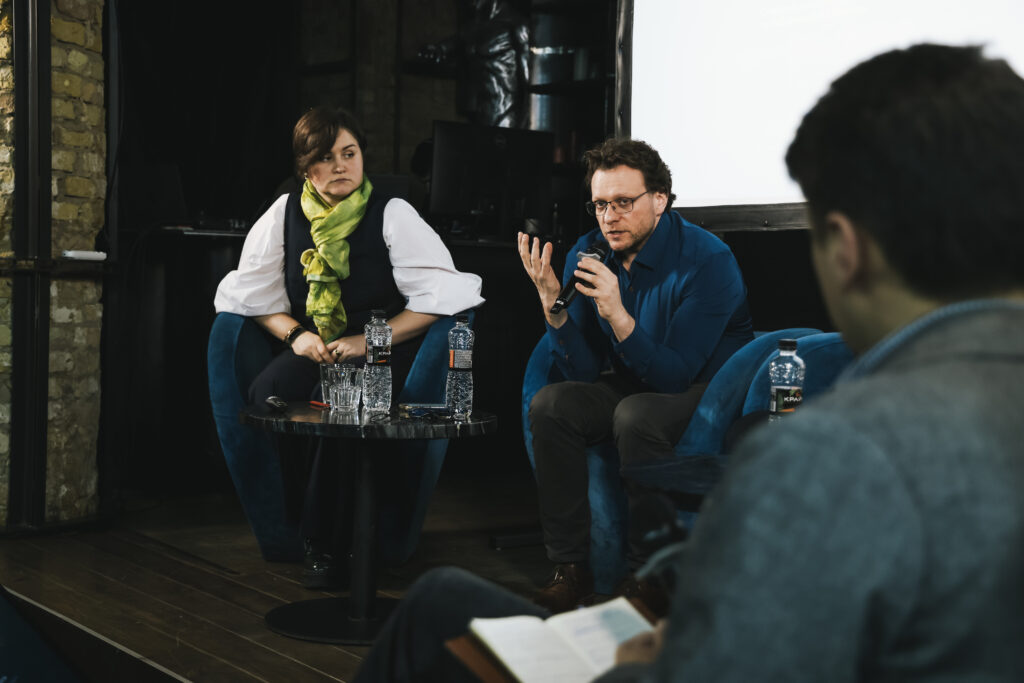«It Is Important to Examine Context and Use Internal Examples». Oleksandra Romantsova at the Conference «Russian Indoctrination and Deportation of Ukrainian Children: How to Restore Justice?»

On 2 April, Oleksandra Romantsova, Executive Director of the Center for Civil Liberties, attended the conference entitled “Russian Indoctrination and Deportation of Ukrainian Children: How to Restore Justice?” and organised by the Reckoning Project with the support of the Ministry of Foreign Affairs of Sweden.
Several panel discussions took place within the conference, attended by legal and security experts and human rights defenders to discuss the most pressing issues, in particular, crimes against children perpetrated during the war, mechanisms of bringing Russia to justice and the strategy of countering disinformation. Oleksandra Romantsova took the floor during the panel discussion “How to Communicate with a Foreign Audience? Media Experience and Sociological Data from Audiences Susceptible to Disinformation”. She was joined there by Peter Pomerantsev, Editor-in-Chief of the Reckoning Project, Hanna Hopko, co-founder of the International Centre for Ukrainian Victory, and Maksym Vikhrov, Senior Analyst at the Center for Strategic Communications and Information Security. Mykhailo Shtekel, coordinator of media partnerships at the Reckoning Project, moderated the event.

“I spoke about our experience of war crimes committed against Ukrainian children, in particular, about their illegal or enforced displacement to the territory of Russia. We discussed the subtleties of how to speak about it in different countries with different experiences. Some of them have such a massive history of crimes against children that it is difficult to impress them with our numbers or the age of suffering children. Therefore, it is important to examine context and use internal examples to explain how critical this situation is, and not only for Ukraine but for the whole world, and how the precedents of these crimes can affect any country.
That is why we shared the experiences of dealing with this topic in Scandinavia and in the countries of Africa, the Americas and Europe, and in all other places where we need partners and collaborators to influence this system in order to bring the Ukrainian children back, provide them with rehabilitation and reintegration and reduce the number of potential crimes perpetrated due to Russia’s aggression. Various NGOs are being involved in this topic, trying to actively cooperate with foreign partners, and this information helps them avoid mistakes and use best practices”, Oleksandra Romantsova pointed out.
The event also hosted a presentation of the documentary “Stolen Oleshky: How Russia Deported Children”, which was introduced in more detail by its producer, Iryna Kyporenko.

